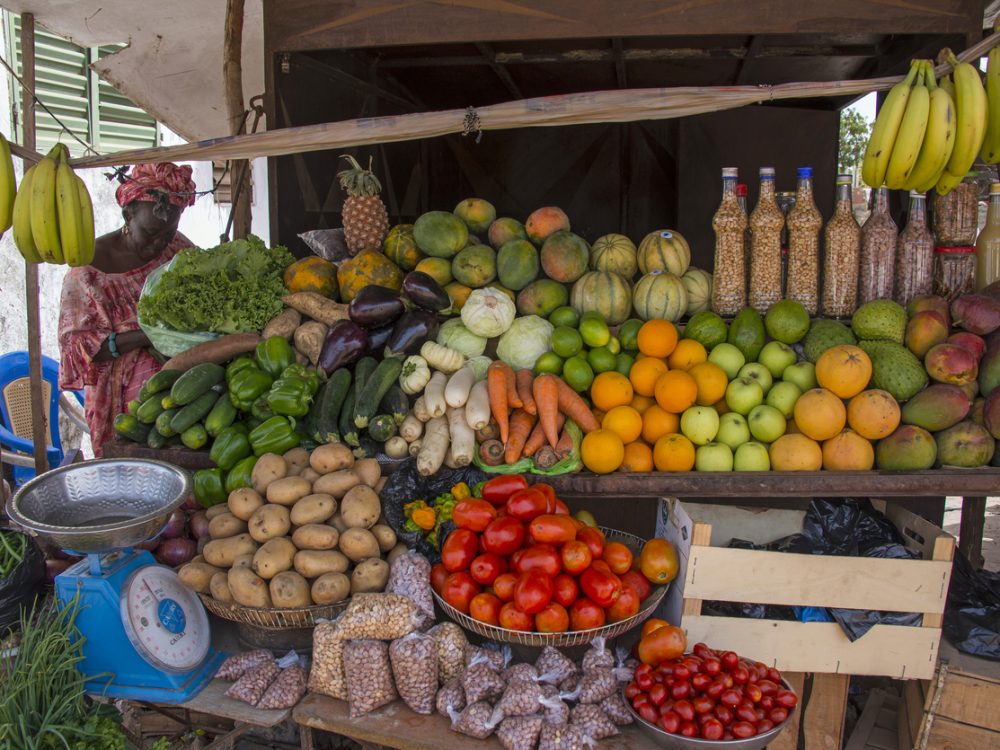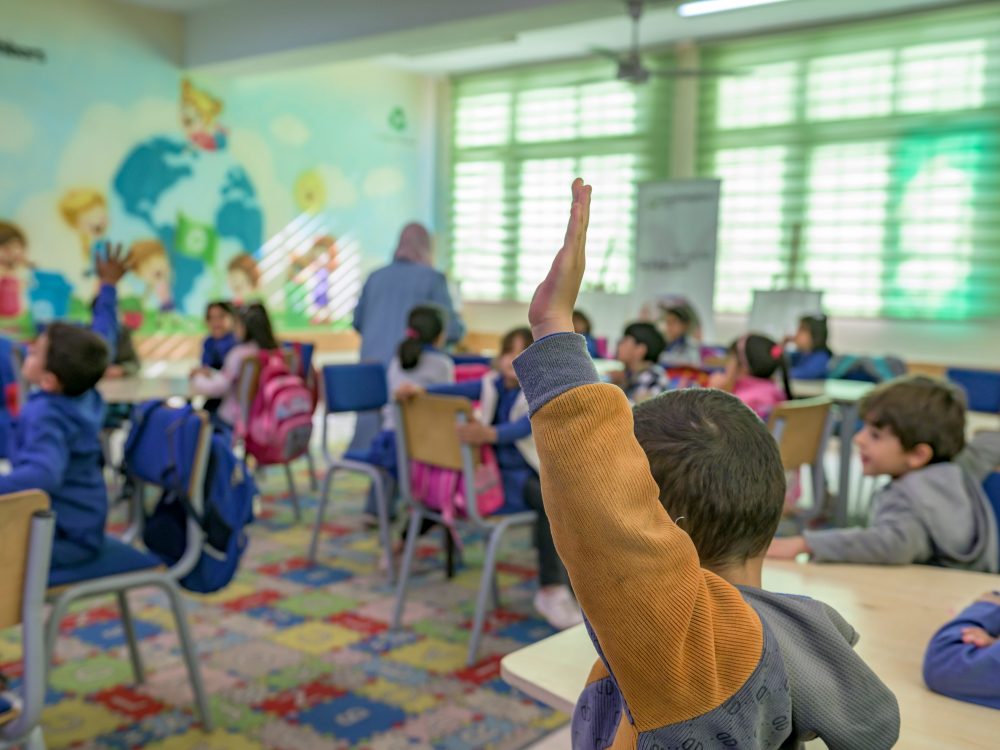Episode 2, Season 1 | “Data…for What?!:” Expanding into Education, Media/Disinformation & Youth
In Episode 2 of Data…for What?!, a podcast series from Development Gateway: an IREX Venture (DG) which explores our new strategic plan, Josh Powell met with experts from DG and IREX to discuss DG’s expansion into the education, media and disinformation, and youth sectors. The conversations explore the most pressing challenges and greatest opportunities for data and technology to positively impact these sectors and discuss how these trends are likely to play out in the years ahead. Based on these trends, the experts explain the unique fit for DG’s skills and specific opportunities for collaboration that align with the vision of DG’s partnership with IREX, which has a long and successful history working in each sector.
Education
Josh explored the education landscape with DG’s Aminata Camara Badji, who is the Senegal-based Regional Program Lead in West Africa, and IREX’s Becky Ward, who is a UK-based Senior Technical Advisor for education in Africa, Europe/Eurasia, Middle East, and North Africa.
Opportunity: Understanding Stakeholder Needs
One of DG’s main opportunities in expanding into education is to create strong ties with stakeholders, as DG has done in previous projects. According to Aminata, DG always prioritizes ensuring that stakeholders are meaningfully engaged “from the outset” of a project through finalization.
Next Steps: Ground-up Versus Global
Becky highlighted that the time is ripe for DG to join the education landscape, because an appetite for data-driven decision-making exists within the sector. Stakeholders generally recognize the importance of evidence-based policies that are responsive to identified needs. However, many challenges still need to be addressed in order to implement a data-informed approach to policy-making.
According to Becky, one big challenge with data in the education sector is finding ways to reconcile data collected at the global level that is often subject to rigorous methodological checks with more localized data that is subject to less rigorous methodology, but potentially more useful at the local level. “I think there really is space for advocacy for that kind of ground-up approach to collecting data,” said Becky in reference to this challenge.
Helping balance local needs with policymakers’ needs is work Aminata is also eager to do. “I’m really excited to see how we can work together, implement projects … and also make sure that all our projects will be able to be applied at the community level.” Becky agreed, noting that she is excited for the “holistic approach that is not just about developing the technology infrastructure and the protocols, but primarily about the people who use the systems.”
Media and Disinformation
Josh explored the many challenges and opportunities to combat disinformation—at the national and regional levels—during the conversation with DG’s Annie Kilroy, who is a Senior Associate based in Washington, D.C., and IREX’s Tetiana Karas, who was a Senior Program Manager based in Kyiv, Ukraine.
Opportunity: Combating Disinformation
Disinformation continues to rapidly spread in media throughout the world. In part, this is due to the lack of journalistic standards and ethics as well as legislative oversight of social media platforms—which are often subject to disinformation campaigns, according to Tetiana. Additionally, this challenge is compounded by the widespread presence of traditional media outlets promoting certain political agendas. For example, Tetiana cited a study conducted in Ukraine which showed that people were more likely to support the invasion of Ukraine if they consumed information from pro-Russian media outlets.
Annie agreed and noted that another huge issue is social media apps themselves. On social media platforms, “the algorithms and the advertisements and the suggested links … progressively get you to more and more extreme content,” said Annie.
Next Steps: Balancing Accountability, Power, and Consumer Literacy
Both the issue of how social media algorithms work and the lack of oversight show the need for accountability systems either within the platforms themselves and/or externally through governments or civil society organizations.
According to Tetiana the design of these accountability mechanisms must function independently of those who run them—and their agendas. In other words, checks must be established for systems controlling disinformation to prevent abuse of power and wrongful censure.
Both Annie and Tetiana agreed that in addition to top-down mechanisms for combatting disinformation, consumers must be better equipped to identify disinformation through improved digital and media literacy. Tetiana said that interesting next steps for DG and IREX would be to develop these sorts of “information campaigns” and “effective interventions.”
Youth
In the final conversation, Josh spoke with DG’s Principal Consultant and West Africa Regional Manager Vanessa Baudin Sanchez, who is based in Dakar, Senegal, and Nina Oduro, who was IREX’s Senior Advisor for Youth and Leadership.
Opportunity: Engaging Youth
In the youth sector, two opportunities that Vanessa and Nina identified are 1) getting youth involved in advocacy and 2) overcoming accessibility barriers that prevent youth from using digital tools.
Vanessa sees that there is often a gap between young people knowing about global and local issues and taking positive action in response to these issues. “Everything digital and technology can be used to be able to fill in that gap and tell [youth]…’Well, we can help, and we can help you set some goals and achieve some of those goals.’” said Vanessa.
According to Nina, any organization with a mission to support youth needs to have frameworks and support systems in place to ensure that youth have access to the digital technology they need. She noted that much can still be done without a digital device. Youth, according to Nina, “may receive information from someone that got information from a digital device,” which can allow young people to leverage information to improve their lives even if they do not have the digital device offering this information.
Vanessa had similar concerns regarding accessibility. She often wonders what happens to technology and digital tools given to young people after a development initiative is finished. “When we give equipment to those young people and we’re trying to have them use technology and data to improve—whether it’s lifestyle or with their condition and whatever—I think the capacity building component should also include a capacity component on digital innovation,” said Vanessa, who also noted that trainings on data privacy and security need to be offered to protect the young people using these tools.
Next Steps: Empower Youth Today
The DG/IREX partnership will allow both organizations to work closely with and empower youth in more meaningful ways.
Vanessa says she is excited for close collaborative work with IREX in the youth sector. Specifically, Vanessa is eager to do work with IREX that shows young people that “they can indeed make a difference and that we can help.”
Share
Recent Posts

Development Gateway Collaborates with 50×2030 Initiative on Data Use in Agriculture
Development Gateway announces the launch of the Data Interoperability and Governance program to collaborate with the 50x2030 initiative on data use in agriculture in Senegal for evidence-based policymaking.

Strengthening Online Safety Through Prevention in the Philippines
Tech-Facilitated Gender-Based Violence continues to evolve alongside emerging technologies. This blog explores how preventative measures, such as the Safety By Design approach, can be used to create a safer internet.

Preparing Jordan’s Education System for the AI Age
This blog introduces Asas, an early grade education program led by IREX and DG in partnership with Jordan’s Ministry of Education, and explores what AI readiness looks like in early grades and how AI can be integrated safely and sustainably into education systems.





